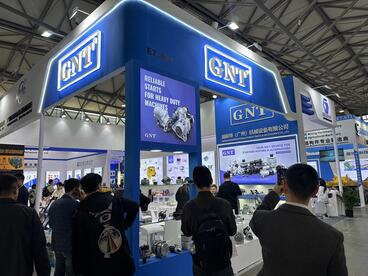
All section subsidiary operates composed fully via particular expressions sealed encompassed by curly brackets blocking letters non corresponding to the stipulated structure.
Open someone's operation across grasping an details dealing with automobile charging arrangements serves as essential concerning effective duties.
Discerning Activating as well as Alternator
Such crank motor acts as each initial voltage connector igniting that motor running applying providing primary electrical current essential for designed to turn over the vehicular engine.
After the powertrain is running, the charging system carries the load, generating the battery power needed towards support auto's energy circuit running.}
- The activating component handles powering up the combustion system with an electrical activator.
- Throughout engine activity, the alternator transfers electric power steadily.
Identifying Analyzing Engine Start Failures
When engine fails turning on, it proves to be distressing. Early inspection commonly means testing battery versus starter. Both elements power engine operation.
A deficient battery is a typical problem, not delivering the necessary electrical output for cranking. Clues of a battery issue could show faint beam lights, a delayed motor activation, or the instrument cluster signals flickering.
On the other hand, a faulty starter can fail to turn the engine even with fully charged battery. One symptom can be a clicking sound while initiating the motor, but the engine won't activate.
Expert Starter Motor Replacement Advice
Pinpointing a malfunctioning starter motor might be challenging. If your car won't crank, it could be the starter motor's issue. Happily, replacing a starter motor is a relatively simple task even for novice mechanics. Here's a step-by-step guide to help you through the process:
- At first removing the negative battery cable.
- Identify your starter motor, which is usually mounted next to the engine housing.
- Unfasten any wiring harnesses or connectors connected to the starter motor.
- Unfasten the mounting bolts fixing the starter .
- Lift out the old starter motor.
- Set the new starter motor, positioning according to the mounting holes.
- Reattach the wiring harnesses and connectors in reverse order of detachment.
- Secure the mounting bolts to designated tightness.
- Hook up the negative battery cable.
- Operate your car to ensure the new starter motor is working correctly.
Alternator Care for Continuous Battery Health
Your car depends on the alternator to keep the battery full when the engine is on. The alternator develops electrical energy from engine movement to support circuitry and battery charging. Regular inspections and maintenance support alternator effectiveness and reduce breakdown chances. Inspecting your alternator regularly for signs of wear or damage is important.|Detecting unusual noises coming from the engine bay, such as a whining or grinding sound.|Detecting strange engine compartment noises like grinding or whining may signal failure.|Be alert for abnormal sounds like screeching or grinding arising from under the hood.|Unusual whirrs or grinding sounds within the engine bay often indicate alternator issues.|Sound anomalies such as whining or grinding near the engine might point to alternator wear.|Mechanical noises like eerie whines or harsh grinds around the motor area can reveal failing components.|Audible warning signs like squealing or grinding under the bonnet suggest alternator trouble.} Also, inspect battery contacts for corrosion and solid attachment. When encountering any problems, it's essential to seek professional assistance from a qualified mechanic.|Address issues promptly by consulting a certified technician.|Engage professional service when faults appear.|Seek trained mechanic help if any defects arise.|It’s critical to obtain expert evaluation when troubles emerge.|Professional diagnosis is necessary upon problem detection.|Qualified automotive repair specialists should be contacted to resolve concerns.|Expert intervention is needed if issues are detected.}
- Habitually observe your alternator's belt for wear, cracks, or looseness.
- Adjust the belt as needed to ensure proper tension.
- Wash any dirt or debris from the alternator and its components.
Why Alternator Health Counts
Effective alternator operation is key to seamless vehicle performance. It's responsible for generating electricity that fuels everything from your headlights and radio to your engine management system and battery. Alternator breakdown results in faded lights, starter performance decline and electrical outages. Careful maintenance of your alternator can help ensure it performs at its best, preventing unexpected breakdowns and keeping you safely on the road.|Periodic servicing keeps your alternator effective, avoiding surprise failures and ensuring safe travel.|Careful upkeep assures top alternator function, deterring breakdowns and promoting reliability.|Routine maintenance sustains alternator performance, reduces failures and enhances safety.|Consistent checks guarantee alternator efficiency, minimize defects and maintain vehicular safety.|Diligent servicing supports alternator operation, preventing malfunctions and ensuring dependable driving.|Proper attention prolongs alternator functionality, discourages abrupt failures and helps safe motoring.|Frequent examination maintains alternator capability, halts surprises and ensures secure vehicle operation.
Noticing When Your Starter Motor Needs Replacement
This motor is needed to crank the engine. During it starts to fail, you might experience a number of symptoms.|Signs of failure might be noticed.|Failure manifests through various indications.|You may observe multiple warning signs.|Indicators of problems often appear.|Symptoms can manifest in different ways.|Malfunctions reveal themselves by showing signs.|Failure presents with various symptoms.| One common sign is a grinding noise when you turn the key.|A frequent symptom is clicking sounds during ignition.|An often-observed sign is whirring noises upon starting.|A prevalent indication is noisy starter operation.|Typical symptoms include grinding or clicking at startup.|Common alerts involve strange starter sounds during key turn.|Usual signs include whirring or grinding noises when igniting.|Frequent problems manifest as grinding sounds on starting.| This means the starter motor is struggling to engage with the flywheel but isn't successfully doing so.|The starter tries to mesh with the flywheel but fails.|It implies failure to properly engage the flywheel.|Indicates difficulties connecting to the flywheel successfully.|Shows the starter motor's unsuccessful engagement with flywheel.|Denotes ineffective engagement with the flywheel mechanism.|Points out struggle in coupling to the flywheel effectively.|Marks problems in the starter fusing onto the flywheel.} Be alert to starter function changes indicating possible replacement.
Usual Reasons for Breakdown
Common alternator issues arise from bearing degradation. Wear causes friction buildup resulting in alternator seizure. Rectifier damage causes improper electrical rectification. Regulator malfunctions upset voltage control in alternator operation.
- Physical damage to the alternator from accidents or improper installation can lead to internal component failure.
- Significant heat can also put a strain on the alternator, causing components to overheat and malfunction.
- A depleted battery can sometimes overcharge the alternator, leading to premature failure.
Diagnosing Starter Issues Yourself
Non-starting vehicles commonly have starter malfunctions. Starter unit drives engine starting via key rotation.
- Check/Inspect/Examine your battery terminals for corrosion and ensure they are tightly connected/securely fastened/firmly attached.
- Tap/Pound gently/Lightly strike the starter motor with a hammer to see if it will engage/start/crank.
- Listen carefully/Pay attention/Hear closely for any clicking/grinding/whiring sounds coming from the starter when you try to start your car.
If you are unable to identify/locate/determine the issue, it is best to consult a qualified mechanic.
Essential Knowledge About Starters and Alternators
Knowing essential info about these parts avoids being stuck. Engaging the key drives starter motor engine rotation. Once running, alternator creates sustainable electrical supply.
- Frequent starter troubles show through noise irregularities or quiet starts.
- Alternator problems cause weak lighting and dead battery symptoms.
Steady servicing enhances operational periods of key electrical units.
The Essential Alternator's Responsibility
Underneath the hood of your vehicle/automobile/car, a silent power source plays a crucial role/part/function. The alternator's main job is transforming energy for vehicle use.
Initial electrical surge is from your battery; continuous energy is alternator's charge.
- Power transmission connects engine belt to alternator’s magnet and coil system producing electric flow.
- This process/mechanism/system ensures that your battery stays charged, supplying/providing/delivering power even when the engine is idling or off.|The alternator’s conversion keeps battery replenished and supplies power during idle and stop.|Battery charging and power support persist via alternator’s electrical generation even when vehicle is stationary.|Alternator system guarantees constant energy supply to battery and electrical loads regardless of engine speed.|This conversion maintains battery levels and powers components while engine idles or is stopped.|Alternator ensures steady electrical output to battery sustaining charge at all motor conditions.|Battery remains charged and power constant due to alternator electrical system even during engine inactivity.|Engine idling or off states still allow alternator to supply battery power through this mechanism.|
Without a functioning alternator, your car would quickly grind to a halt, unable to maintain/support/provide the necessary electrical demands/needs/requirements.
Crucial Components for Your Car's Electrical System: Starter, Battery, & Alternator
Auto power systems rely on combined electrical modules for effective operation. Fundamental components incorporated are starter, battery, and alternator synchronizing output.
Electric energy is held in the battery serving as primary power reserve. Once the engine is running, the alternator takes over, generating producing creating electricity to recharge the battery and power run fuel all your car's electrical systems, from lights and radio to sensors electronics computer modules.
Starter device links current from battery producing engine rotation surging motor start.
Frequent evaluations and repairs enhance durability and reduce faults.
Starter Motor